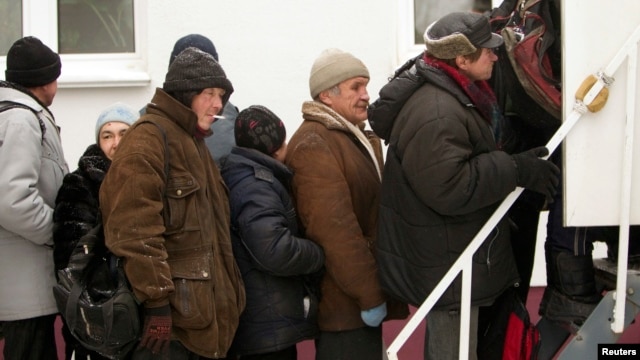bitterlyclingin
Silver Member
- Aug 4, 2011
- 3,122
- 425
- 98
[Human infants are born with blood components that behave like antibodies to the staphylococcus bacilli, latching onto them, identifying them as foreign invaders and priming them for destruction from birth. The body adapts to other foreign invaders by fabricating antibodies to these as they are encountered throughout life. When it senses the presence of these invaders internally, the body mounts its response, the elevated body temperature, manufacture of antibodies, wholesale migration of lymphocytes, macrophages and other blood components to the site of infection occur in order to eliminate the invader.
The Tuberculosis bacillus somehow seems to be able to evade the body's defense mechanisms, setting up shop uninhibited to feed off the body's cornucopia of nutrients, reproduce more of itself, weaken and eventually kill its host. Even with the use of modern antibiotics, the body doesn't seem able to actually destroy the bacteria, but only wall it off, leaving it dormant until the hosts defenses weaken and allow it to once again spring loose out of its cocoon.]
"Hate preacher Abu Qatada issued orders to kill British and American civilians after the 9/11 terrorist attacks, according to a secret MI5 report seen by The Mail on Sunday.
The Security Service document has raised questions as to why Qatada who the British Government has tried and failed to deport to Jordan has not been put on trial in the UK for inciting murder.
The report is marked secret UK eyes only and claims Qatada is the author of a fatwa that encourages Muslims to take part in jihad against the West.
The Qatada fatwa also gives religious justification to the 9/11 attacks in the US which killed 2,977 civilians.
The MI5 case file on Qatada was discovered abandoned in the British ambassadors residence in Tripoli by The Mail on Sunday after the toppling of Colonel Gaddafi last year.
It says: In arguing the legal case for the attacks of September 11, Abu Qatada advocates fighting jihad against America and the West.
However, he goes further to include not only the aggressor (the American government), but anybody associated with the aggressor (its civilians) as prospective targets.
Qatada, who has been described as Osama Bin Ladens right-hand man in Europe, remains on bail in London after Home Secretary Theresa May lost the latest round in her battle to deport him to Jordan, where he is wanted for his alleged roles in two bomb plots against foreigners.
The court ruling which means the extremist preacher is free to walk the streets of London for six hours a day prompted Prime Minister David Cameron to say he was completely fed up with the Qatada problem."
UK: Islamist Cleric Freed By EU Court Issued Orders To Kill British Citizens After 9/11… | Weasel Zippers
The Tuberculosis bacillus somehow seems to be able to evade the body's defense mechanisms, setting up shop uninhibited to feed off the body's cornucopia of nutrients, reproduce more of itself, weaken and eventually kill its host. Even with the use of modern antibiotics, the body doesn't seem able to actually destroy the bacteria, but only wall it off, leaving it dormant until the hosts defenses weaken and allow it to once again spring loose out of its cocoon.]
"Hate preacher Abu Qatada issued orders to kill British and American civilians after the 9/11 terrorist attacks, according to a secret MI5 report seen by The Mail on Sunday.
The Security Service document has raised questions as to why Qatada who the British Government has tried and failed to deport to Jordan has not been put on trial in the UK for inciting murder.
The report is marked secret UK eyes only and claims Qatada is the author of a fatwa that encourages Muslims to take part in jihad against the West.
The Qatada fatwa also gives religious justification to the 9/11 attacks in the US which killed 2,977 civilians.
The MI5 case file on Qatada was discovered abandoned in the British ambassadors residence in Tripoli by The Mail on Sunday after the toppling of Colonel Gaddafi last year.
It says: In arguing the legal case for the attacks of September 11, Abu Qatada advocates fighting jihad against America and the West.
However, he goes further to include not only the aggressor (the American government), but anybody associated with the aggressor (its civilians) as prospective targets.
Qatada, who has been described as Osama Bin Ladens right-hand man in Europe, remains on bail in London after Home Secretary Theresa May lost the latest round in her battle to deport him to Jordan, where he is wanted for his alleged roles in two bomb plots against foreigners.
The court ruling which means the extremist preacher is free to walk the streets of London for six hours a day prompted Prime Minister David Cameron to say he was completely fed up with the Qatada problem."
UK: Islamist Cleric Freed By EU Court Issued Orders To Kill British Citizens After 9/11… | Weasel Zippers



